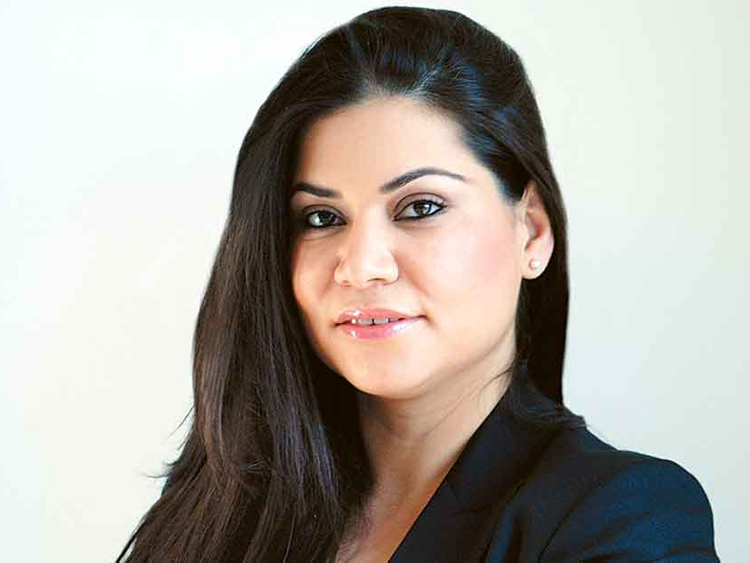
Dubai’s real estate scenario isn’t pretty. “Last year, residential sale rates declined by around 12 per cent year-on-year,” says Erik Volkers, Associate Director, CBRE Middle East. “During the first quarter, we have seen these trends continue, although there was a more notable decline in rental rates with a 3 per cent decline recorded.
"We expect the residential market to remain under deflationary pressures during the remainder of 2016, with weaker demand leading to further decline in both sales and leasing rates.”
And while the slump in the market continues to dominate headlines, potential buyers and investors are determined to take advantage of the favourable winds blowing in their direction.
Take, for instance, Dubai-based Ziane Gouicem, who lives in Al Badia, Festival City. He bought a property at the Centurion Star Building in Port Saeed through Raine & Horne Real Estate Consultants. “I think this is the perfect time to acquire a property in Dubai, because you have to follow the universal rule of buying when the market is low and selling when it’s high.”
Volkers says, “If you are an owner/occupier planning to stay in Dubai for a longer period, then a subdued period in the market with stronger bargaining power for the purchaser could be viewed as a good time to buy, provided that you have sufficient levels of savings/equity.”
It’s obvious that current market conditions are prompting investors to expand their portfolio and take strategic advantage of lower rates. This April saw Dubai resident Sanjay Singla invest in the Hiranandani development in Dubai Marina, as well as several other properties including two apartments in Jumeirah Lake Towers and one in Dubai Investment Park.
“The current market certainly favours buyers. There are good chances for 15-20 per cent appreciation in the next 2-3 years in Dubai property market. If we can buy a property that is 3-5 per cent less than the current prevailing price, you can easily offset any negative impact,” says Singla, who bought the house through Keller Williams with the purpose of renting it.
A diligent investor, Singla has done his homework and in terms of rental returns he is looking at about 6.5-7.5 per cent. “So if we compare it with the returns on rentals vs ROI on bank [deposits], rental returns are much higher. So the smartest aspect of picking up property now is return on rentals plus chances of 15 per cent appreciation in the coming three years.”
Payment plans
Another aspect making this market so lucrative to buyers are the attractive payment plans that developers are compelled to offer in the hope of sweetening the pot.
Dubai-based architect Karan Mehra invested in a four-bedroom villa in Dubai Hills this February. “I wasn’t going to wait for the prices to fall further because there is no guarantee. Also, for the first time, Emaar was offering a payment plan where I had to pay only 10 per cent every 6 months and at the end of 36 months I would get full possession. And to add to it, Emaar is offering another two years to complete the balance payments. I couldn’t resist an offer like this.”
The current mortgage regulations set by the UAE Central Bank require first-time buyers to have a minimum of 25 per cent of the property value as equity (existing properties only) and a minimum of 50 per cent equity for a property bought off-plan.
“In light of this regulation, we have seen the residential market evolve, with developers forced to become more creative and offer more appealing terms to buyers/investors, particularly within the competitive off-plan market,” says Volkers.
“As a result, payment plans have become an increasingly important driver of the investment decision for off-plan properties, sometimes even outweighing price per square foot.”
Flexible, back-weighted payment plans have allowed investors and end users to secure properties with a minimal initial down payment and low instalments, with a large lump sum paid upon or after completion, adds Volkers.
As an example, Emaar Properties completed Casa Villas in Arabian Ranches, which were offered with no agency commission (2 per cent), no transfer charges (4 per cent), and the Oqood land registration charge (4 per cent) paid by Emaar. Furthermore, the market saw Aqua Properties offer a seven-year monthly payment plan for units in Skycourt Towers, Dubailand.
Wait and watch
But there are optimists who have dug in their heels and are determined to wait until the market further cools down. “We haven’t seen the bottom yet,” says Dubai-based Shital Somaiya.
“There is always a slump in the summer and financial markets are predicted to get even more stringent, forcing rates to fall and developers to offer attractive schemes. Rents have dropped in many locations as have prices. I’m waiting for the dust to settle and the market to correct another 5-7 per cent, which is when I’ll buy an off-plan home.”
Sofia Underabi, Head of Residential Valuation, Cavendish Maxwell, also believes it’s now about waiting for the dust to settle. “There has been limited transaction activity in the last few quarters in the Dubai residential market as buyers are waiting it out due to uncertainty and sellers remain reluctant to negotiate prices downwards.”
A real change will be based on sound fundamentals backed by activity from investors who have a long-term horizon and supported by sustained economic and job growth, which are the key drivers for housing demand, adds Underabi.
“[Last year’s] regulations to drive out speculators also strengthened the move towards a mature market.
“Yet, in the medium term, the market recovery is subject to oil price stability and improved economic climate, both globally and within the UAE,” she adds.
















